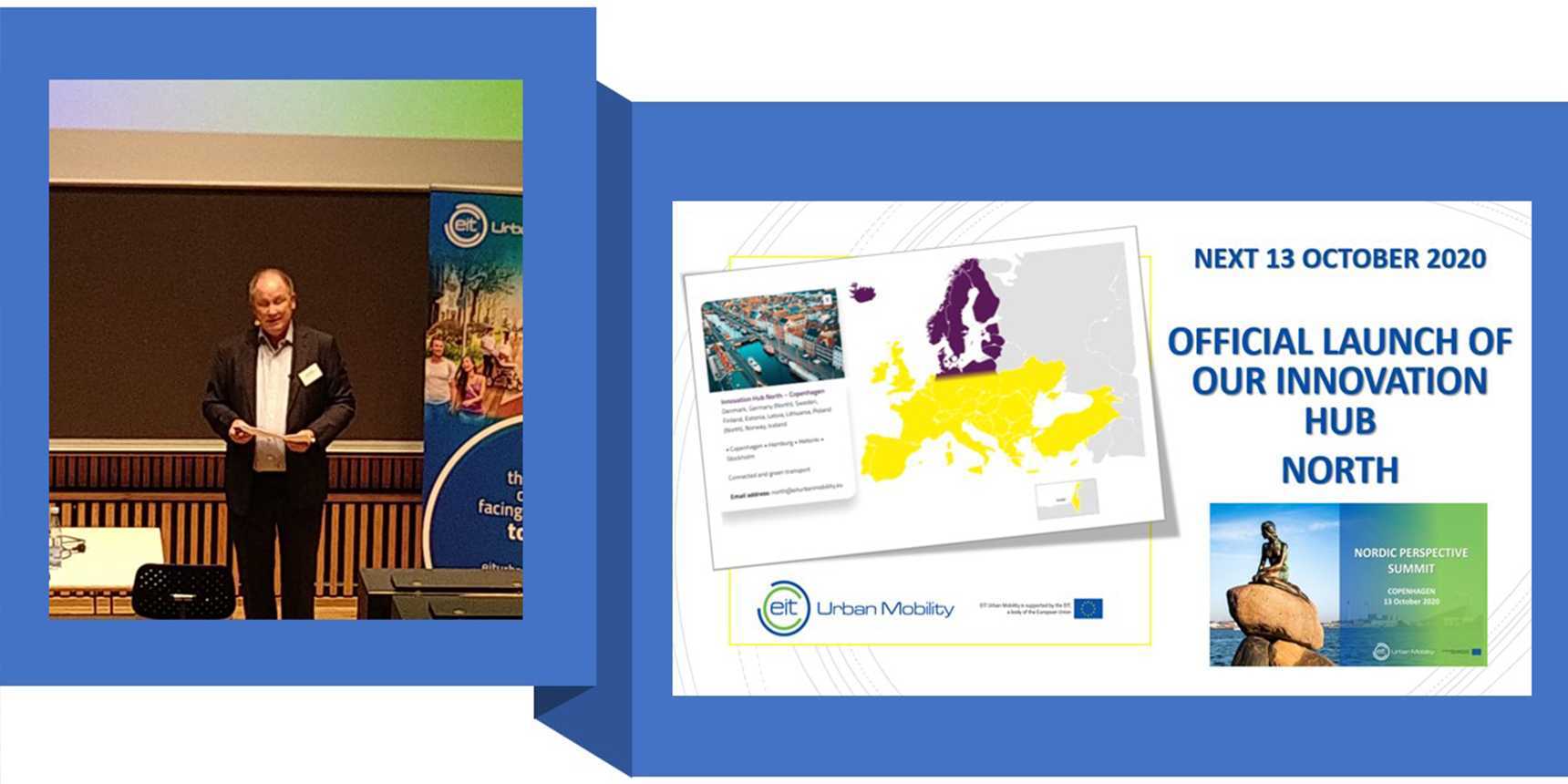Official launch of the EIT Urban Mobility Innovation Hub North

On 13 October 2020, the EIT Urban Mobility Innovation Hub North was officially launched during the Nordic Summit Perspective.
The event took place in Copenhagen (and online) and it brought together all relevant stakeholders across the whole EIT Urban Mobility network and beyond.
The official opening of EIT Urban Mobility Innovation Hub North
Henrik Morgen, Director of EIT Urban Mobility Innovation Hub North, opened the event and marked the official inauguration of the hub, with a warm welcome, and introduction of the EIT Urban Mobility. EIT Urban Mobility is a network-based organisation, and Henrik Morgen ended by urging cities, industry and universities to express their potential interest in becoming a partner of the EIT Urban Mobility network of core-, network- and project-partners. The number of partners is constantly growing, and there is room for more.
Maria Tsavachidis, CEO EIT Urban Mobility took over with a short presentation on the EIT Urban Mobility take on the future, and how we see the way forward towards building more liveable urban cities. Both Henrik and Maria emphasised that cities are at the centre of EIT Urban Mobility, and that we aim to build a strong community to deliver on our objectives to accelerate liveability in European cities.
Nordic Perspective Summit – Relieve the six sessions:
Three parallel sessions were organised in the morning and in the afternoon, where both the speakers and the participants were in the auditorium at DTU Campus in Lyngby (Denmark) and virtual online creating a very dynamic environment.
Here is a short summary of the most interesting take-aways from the day.
Long-distance cycling
Cycling has had a new boost in COVID-19 times as public transport ridership has dipped. How can we take advantage of this and keep up high levels of cycling in the future? This coupled with more new results on the high socio-economic benefits of cycling projects (11% internal rate of return. New study 8-11%, up to 25-28% IRR with new health benefit values) makes it the ideal time to take the conversation forward and continue supporting cycling as a serious mode of transport in cities.
Jeppe Rich, Professor at DTU Management, has in the following days been quoted in the Danish media with these interesting findings regarding socio-economic benefits, that might increase the political willingness to invest in bike related infrastructure even more.
Behavioral change and citizen engagement
Behavioural change is hard, and any measures for behavioural change need to be adapted to the local circumstances. This was once again reiterated in this session.
For those of us working in mobility, we need to understand how we make the “good” choice the easy choice. Open and local co-working space in the suburbs of Stockholm has proven to be very popular as an intermediate between working from home and commuting to workplace. Is this the beginning of the re-vitalisation of suburban areas?
Link between transport infrastructure and urban planning
More than half of our time (up to 70%) in public transport trips is used on walking or waiting, and 80% of impression is visual. Therefore, increasing focus on building nice surroundings influence how time is perceived.
Electro Mobility: towards 100% electrification
Things are moving fast in the field of electromobility. Electric roads, Vehicle to Grid, electric buses and trucks are no longer future technology but are here today. Now the issues are how to scale, while adapting advances in technology and plan and manage a large-scale electric vehicle introduction. We are a long way to electrified transport today with only 5% of fleet electric.
Intelligent transport systems
Autonomous driving has the last decade or two been 2-5 years away, and most likely still is also a decade from now. Technology is still far from being ready. But nevertheless – get prepared. Mobility labs as way for cities to promote and enable future mobilities.
Transport in the time of the pandemic
COVID-19 has caused a dramatic change to traffic patterns, with congestion levels still significantly and consistently below pre-COVID levels across the world. However too early to tell if this will be the 'end of traditional working hours'.


 Share this page
Share this page


